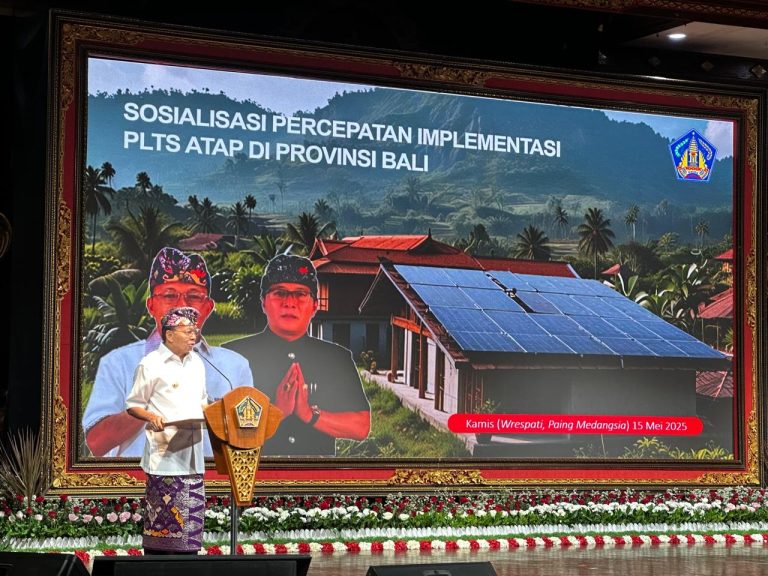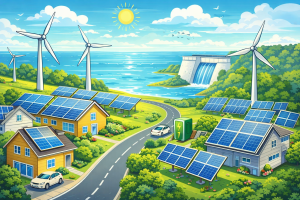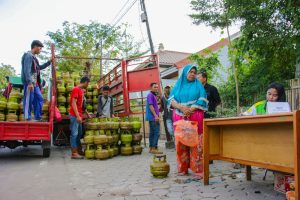Jakarta – Bali’s dependence on fossil-based electricity supply, including from the Java-Bali submarine cable, is considered too risky for the island’s energy security. Recognising its vulnerability, the Bali Provincial Government is taking strategic steps by encouraging the massive utilisation of rooftop solar power plants (PLTS) to strengthen regional energy independence.
Bali Governor I Wayan Koster stressed that accelerating the utilisation of rooftop solar power plants is a clean energy programme and part of the main policy towards an energy-independent Bali. “I don’t want Bali to continue to depend on electricity supplies from outside. All government offices, hotels, schools, villas, and markets must start using rooftop solar panels,” Koster said in his direction on Thursday, 15 May.
Huge potential, low utilisation
Based on the Institute for Essential Services Reform (IESR) analysis, Bali has 22 GW of solar energy potential, with the specific potential for rooftop solar PV ranging from 3.3 to 10.9 GW. However, less than 1% of this potential is currently being utilised.
“This is clearly an irony. On the one hand, we have extraordinary solar potential. However, on the other hand, we are still very dependent on supplies from Java, which can be disrupted at any time,” said Fabby Tumiwa, Executive Director of IESR.
He said that rooftop solar power plants equipped with a battery energy storage system (BESS) are the fastest and cheapest way to improve Bali’s energy security while reducing the pressure on PLN to meet the increased electricity demand after the pandemic.
From government to private sector and community
The acceleration of rooftop solar PV utilisation will start from government-owned buildings, then target the business sector and public facilities. Ida Bagus Setiawan, Head of Bali’s Manpower and Energy and Mineral Resources Agency, said this policy will significantly boost the renewable energy mix in Bali.
“With massive implementation, we can achieve a high renewable energy mix. This is not just about the Bali Net Zero Emission 2045 target, but real realisation,” said Ida Bagus.
The programme also received support from academics. Prof Ida Ayu Dwi Giriantari, Chairperson of CORE Udayana University, mentioned that the development of conventional power plants cannot continue indefinitely. Demand management strategies must be prioritised.
“The use of distributed rooftop solar power plants is much more efficient regarding space and the environment. This is the best way to harmonise energy needs with the limited space in Bali,” explained Prof Ida.
An example of community-based energy transition
Rooftop PV is not only a technical solution, but also a symbol of public participation. In several joint studies with Udayana University, such as the Nusa Penida 100% Renewable Energy 2030 programme and the Bali NZE 2045 Roadmap, household-scale solar energy utilisation is key to expanding clean energy access and creating green jobs.
IESR also encourages the revision of Permen of ESDM No. 2/2024, which currently limits rooftop solar PV through a quota system. IESR urges that the net-metering scheme and the utilisation of Rooftop PV with BESS be revived so that more consumers, especially industrial and commercial, can participate.
“If reorganised, rooftop solar can grow rapidly. We need more local initiatives like Bali, which dare to lead the change,” added Fabby Tumiwa.
With its strategic role as a global tourist destination, Bali has the potential to become a real example of a just and community-based energy transition. Collaboration between the government, private sector, local communities and educational institutions is the foundation of this transformation.
“We want to make Bali a clean, resilient and energy-independent island. This is not just a political promise, but a movement with Balinese citizens for the future,” said Governor Koster, closing his direction. (Hartatik)
Banner photo: Bali Governor, I Wayan Koster, launched the Acceleration of Rooftop Solar PV Utilisation programme to achieve Bali Energy Independence on Thursday (15/5). (Source: IESR)















